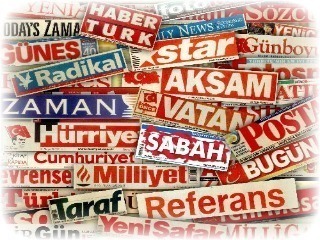Turkey and the Georgia War: a Bungled Stability Initiative
By M. K. Kaya and Svante E. Cornell (vol. 1, no. 12 of the Turkey Analyst)
Like most other states, Turkey was hard pressed to respond to the war in Georgia. For Turkey, the war threatened its position in the Caucasus, as well as its long-term objective of becoming a hub of European energy transportation. Prime Minister Erdogan chose to moment in order to promote a form of Caucasian alliance - a well-intentioned but somewhat surreal proposal in the middle of a raging war. The crisis exposed the government's lack of attention to the Caucasus, and the need for a serious rethink of Turkey's role there
What the Columnists Say
The March 30 municipal elections in Turkey are generally viewed as a resounding victory for Prime Minister Recep Tayyip Erdogan, as a consequential defeat for the movement of Fethullah Gülen and for the opposition that was tacitly allied with the movement. Still, commentators who are opposed to Erdogan point out that his party sustained a sizeable loss compared to the general elections in 2011 that cannot be ignored. They also ask if he is going to be able to govern a country that is as fractured and highly polarized as Turkey has become. The observation is made that every election since 2002 has demonstrated the existence of three, culturally distinct Turkeys, and that the March 30 elections showed that these differences have hardened to a point where the question becomes if the people of Turkey still has the will to live together.
What the Columnists Say
The Turkish parliament’s adoption of a law that subordinates the judiciary to the government is sharply criticized by many columnists. Many are also expressing disappointment over the fact that President Abdullah Gül did not return the internet law to parliament. Mehmet Altan, a former supporter of the AKP, writes that Gül has forfeited his chances to be re-elected by rallying to Prime Minister Erdoğan. Orhan Bursalı in the secularist daily Cumhuriyet meanwhile interprets Gül’s non-veto as a sign that he and Erdoğan have reached an agreement. He notes that the authoritarian laws that are now passed strengthen the prime minister, which he sees as a sign that Erdoğan intends to remain in that position and let Gül keep the presidency. The general expectation outside the pro-government dailies is nonetheless that the end is nearing for the AKP regime. Ergun Babahan, formerly a pro-AKP commentator, warns Erdoğan that what has happened in Ukraine can also take place in Turkey.

What the Columnists Say
The interviews that Fethullah Gülen has recently given to Western media have provoked critical comments in the pro-AKP media. Abdülkadir Selvi questions Gülen’s claim that the rift between his movement and the AK Party was caused by the government’s back-tracking on democratization. Mustafa Akyol offers what he calls a “friendly warning” to the Hizmet movement, writing that its involvement in Turkish power games endangers its global influence. Meanwhile, Mümtaz’er Türköne, in the Gülenist daily Zaman deplores that Islamism has been undone by graft and by the attempt of Prime Minister Recep Tayyip Erdoğan to monopolize the surplus of the state for his part of the Islamic movement. Liberal commentator Mehmet Altan warns that the government is courting a danger of the worst kind by opening the door for the military in order to evade justice.

What the Columnists Say
The crisis in the Turkish state is of growing concern among the commentators in the Turkish press. Liberal commentators have in particular started to worry that the crisis is going to have the effect of re-inviting the military into the political equation ; indeed they warn that the recent statements of the General Staff indicate that this has already happened. "The increasing frequency of the statements of the General Staff is not at all reassuring," writes Hasan Cemal. Leading pro-government commentator Abdülkadir Selvi argues that the AKP needs to embrace new friends, the military and also the Kurdish movement, to stave off the challenge of the Gülen movement. "If the state crisis, the fight between the institutions, turn into a threat to the existence of the state in the eyes of the military, the position they will take is going to represent a risk for democracy," warns Ali Bayramoğlu. While liberals see a risk that the old guard military may return, others speculate about the Gülenists within the military and point out that the question how they might act is the big unknown of the raging power struggle.




